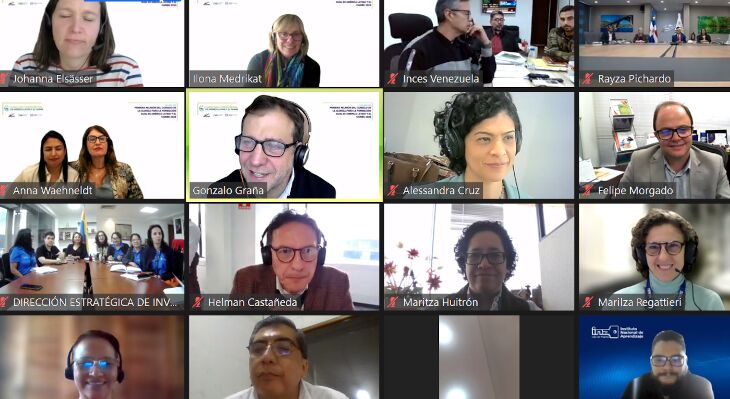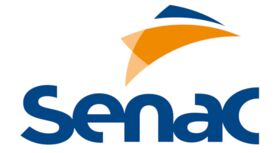New presidency (SENAC)
The Brazilian VET institute SENAC takes over the presidency of the Alliance for Dual Education in Latin America and the Caribbean

On 8 April 2025, the General Assembly of the Alliance for Dual Education in Latin America and the Caribbean confirmed the Brazilian VET institute SENAC (National Service for Training in Commerce and Tourism) as its new president. SENAC will lead the activities of this regional network for one year, with technical advice from BIBB (reference institution) and support from ILO/Cinterfor (Technical Secretariat). The Alliance's stated goal is to promote dual training as a key strategy for improving the employability of young people and the productivity of the economy in the region.
During the virtual meeting, Anna Beatriz Waehneldt, Director of Vocational Education and Training at SENAC, pledged a high level of commitment during her pro tempore presidency in 2025-2026. She outlined an ambitious agenda and promised to focus on key issues in dual training, in particular ensuring quality in training, strengthening links between training and the economy, the dissemination of ILO Recommendation 208 on quality dual VET (R208, 2023) and the organisation of the Alliance's next presence meeting in Rio de Janeiro in October. ‘It will be a great pleasure to welcome you to discuss and strengthen the dual training model,’ said Anna Beatriz Waehneldt.
The Director General of INFOTEP, the National Institute for Technical Vocational Education and Training of the Dominican Republic, Rafael Santos Badía, gave a positive assessment of his institution's presidency over the past year. In his closing speech, he emphasised that his country had been able to position itself as a regional reference for dual training during this period and highlighted activities such as the international conference in Santo Domingo, the webinars on artificial intelligence and training support in companies, and the national (hybrid) meeting of dual trainers in the Dominican Republic. The members praised INFOTEP's commitment and welcomed the new Brazilian presidency for 2025-2026.
On behalf of BIBB, Johanna Elsässer (Project Manager for Latin America, division 3.2) emphasised that change is a constant for all of us, which we must not only accept but also actively shape, especially in the field of vocational education and training: ‘Cooperation within the Alliance offers us a strong platform to realise this vision.’
Elena Montobbio, Director of ILO/Cinterfor, emphasised the importance of dual training as a response to the economic and social crisis in the region. ‘In these uncertain times, dual training is one of the most sustainable solutions. This horizontal network strengthens our collective capacities,’ she said.
Ilona Medrikat (BIBB, division 3.2), who supports the Alliance's technical assistance within the coordination group on behalf of BIBB, highlighted the importance of the smooth handover to a new presidency in the Alliance's fourth year of existence and emphasised the uniqueness of this network for dual training in Latin America and the Caribbean. Gonzalo Graña, who supports the presidency on behalf of ILO/Cinterfor in the coordination group, moderated the event.
About the Alliance for Dual Education in Latin America and the Caribbean
The Alliance for Dual Education in Latin America and the Caribbean was founded in 2021 with the aim of creating a platform for vocational training institutions in the region to exchange knowledge and best practices and promote high-quality dual education that meets the needs of the labour market and improves opportunities for tomorrow's skilled workers. [more]
The Alliance is steered by a coordination group consisting of the respective one-year presidency (‘chair country’), the BIBB (reference institution) and ILO/Cinterfor (Technical Secretariat at the Inter-American Centre for Knowledge Development in Vocational Training of the International Labour Organisation).
What is SENAC?

SENAC, Serviço Nacional de Aprendizagem do Comércio or English National Service for Apprenticeship in Commerce, has its headquarter in Rio de and, alongside its BIBB partner institute SENAI (for industry), is part of the so-called ‘System S’ in Brazil, an employer-financed system with government responsibilities that comprises a total of nine institutions.
SENAC was founded in 1946 as a private-sector initiative and offers training and further education for young people and employees in the fields of commerce, services and tourism. SENAC is active in more than 2,000 Brazilian municipalities with 651 operational units. In 2024, more than 1.5 million people were enrolled, and more than 1,100 different courses were offered in 28 occupational fields. In the area of dual training, SENAC is the largest provider alongside SENAI, covering about 30% of the educational offerings in Brazil. In 2024, there were more than 185,000 enrolments for courses and programmes.
More information: www.ead.senac.br